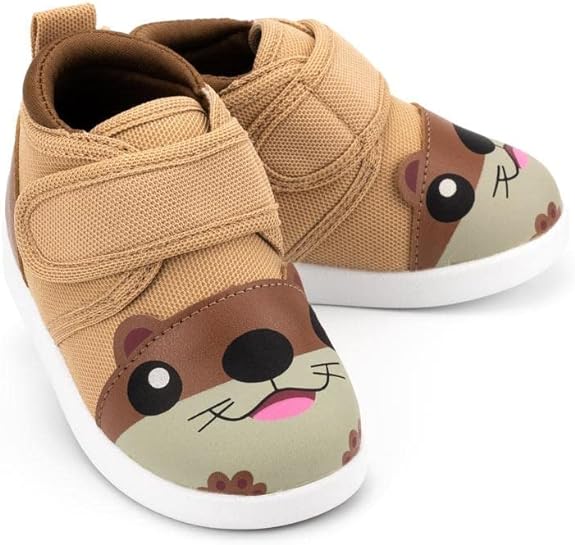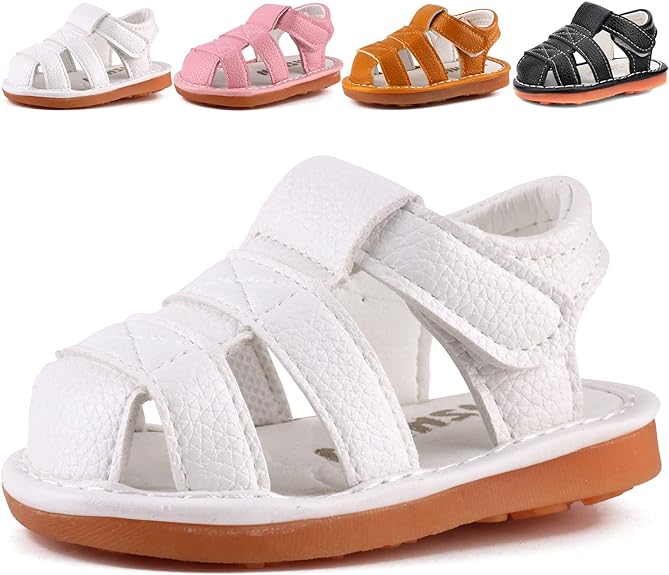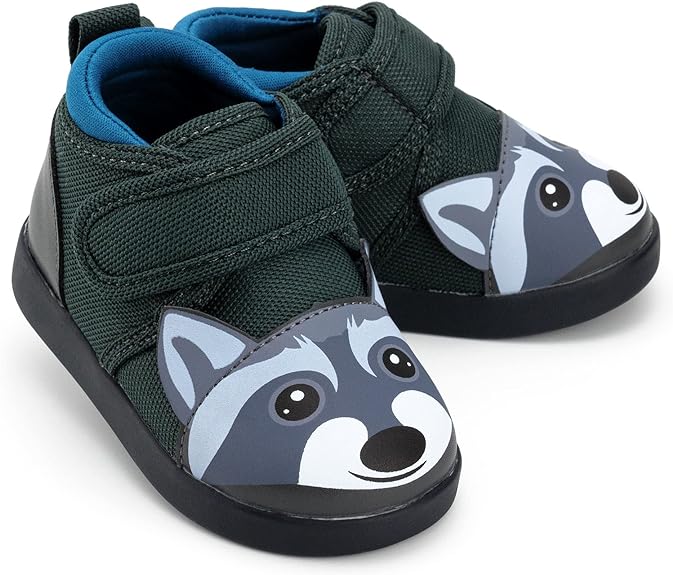Why Do My Shoes Squeak So Much? Have you ever walked into a room, hoping to go unnoticed, only to have your shoes announce your arrival with an embarrassing symphony of squeaks? If you’ve found yourself in this awkward situation, you’re not alone. Many individuals ponder the puzzling question, “Why do my shoes squeak so much?” In this article, we will delve into the underlying reasons behind these noisy companions, explore effective remedies to silence them and provide guidance on preventing future squeaking. So, let’s embark on a journey to uncover the mystery of squeaky shoes.
Why Do My Shoes Squeak So Much?
Shoe squeaking can be a perplexing issue, often catching us off guard during moments when we want to go unnoticed. To comprehend this annoyance, it’s crucial to peel back the layers and uncover its origins.
The primary causes of shoe squeaking often lie beneath the surface. One common culprit is excess moisture, whether from external factors like rain or internal sources such as sweaty feet. This moisture infiltrates the shoe’s components, leading to friction and that unmistakable noise.
Additionally, manufacturing plays a pivotal role. Inexpensive materials or shortcuts in the manufacturing process can result in subpar adhesive bonds, causing air pockets within the shoe. These pockets, when compressed while walking, create the familiar squeak.
To conquer squeaky shoes, we must first fathom the forces at play. With this knowledge, we can explore effective solutions and bid farewell to noisy footwear.
Moisture: The Squeak Culprit
One of the leading causes of persistent shoe squeaking is often lurking in plain sight: moisture. Whether it’s rainwater infiltrating your shoes or the consequence of sweaty feet, excess moisture can turn your footwear into an orchestra of squeaks.

When moisture seeps into your shoes, it creates an environment where friction thrives. As you take steps, the wet materials rub against each other, generating that annoying squeaking sound. This phenomenon can be particularly frustrating, as it seems like there’s no escape from the noise.
The good news is that understanding the role of moisture in shoe squeaking can lead to effective solutions. By addressing the moisture issue head-on, you can silence the squeak and regain the confidence to step quietly and comfortably.
Poorly Glued Soles
In the quest to unravel the mystery of squeaky shoes, we encounter another common culprit: poorly glued soles. This manufacturing flaw can turn your steps into a squeaking symphony, much to your chagrin.

When shoes are crafted with inadequate adhesive to bond the sole to the upper part, trouble ensues. Air pockets form within the shoe, and as you walk, these pockets compress, resulting in that unmistakable squeaking noise. It’s a frustrating issue, especially when you’ve invested in a pair of shoes you expected to be reliable and noise-free.
Thankfully, understanding the role of poorly glued soles in squeaky shoes empowers you to take action. By addressing this manufacturing defect, either on your own or with professional assistance, you can bid farewell to squeaks and stride confidently once again.
Neglected Maintenance
The enigma of squeaky shoes often leads us to uncover yet another piece of the puzzle: neglected maintenance. It’s easy to overlook, but failing to care for your footwear can contribute to that annoying symphony of squeaks.

Dirt, dust, and debris can accumulate inside your shoes over time. When these foreign particles create friction within the shoe, they produce noise with every step you take. This issue is more common than you might think, as many of us tend to wear our favorite shoes without giving them the attention they deserve.
The good news is that by incorporating regular cleaning and maintenance into your shoe care routine, you can prevent the buildup of unwanted materials and the ensuing squeaks. With a little TLC, your shoes will not only look better but also sound much quieter.
Shoe Material Matters
When it comes to the intriguing case of squeaky shoes, the type of material your footwear is made from can be a critical piece of the puzzle. Certain materials are more prone to creating that annoying squeaking sound with every step you take.
Materials like rubber or specific synthetic fabrics have a higher propensity for generating friction, which is the root cause of shoe squeaking. As your foot moves within the shoe, these materials rub against each other, resulting in an unmistakable noise that can turn heads and raise eyebrows.
Understanding the role of shoe material in squeaking is essential because it can influence your choice of footwear. Opting for shoes made from quieter, less friction-prone materials can help you enjoy a more peaceful and less noisy walking experience. So, when it comes to squeaky shoes, the material truly matters.
Manufacturing Defects
In the ongoing quest to decode the mystery of squeaky shoes, we encounter another potential culprit: manufacturing defects. Even the most reputable shoe brands can sometimes let defects slip through the cracks, leading to the irksome issue of noisy footwear.
Manufacturing defects can take various forms, from irregularities in the sole to improper assembly of shoe components. When these defects occur, they can disrupt the normal, smooth operation of your shoes and result in squeaks. It’s a frustrating scenario, especially when you’ve invested in what you expected to be a reliable pair of shoes.
However, understanding that manufacturing defects can be behind the annoying squeak empowers you to take action. In many cases, professional cobblers can diagnose the problem and apply long-lasting fixes to ensure your shoes are as quiet as they are comfortable. Don’t let manufacturing defects keep you from enjoying your favorite footwear; solutions are within reach.
Loose Insoles
The riddle of squeaky shoes takes us on a journey through various causes, and one frequently overlooked source of the problem is loose insoles. These seemingly innocuous components can become agents of noise when they’re not securely fastened within your shoes.
When insoles are loose and not firmly attached to the shoe’s interior, they have room to move around as you walk. This movement creates friction between the insole and the shoe, resulting in the characteristic squeaking sound that can be both embarrassing and annoying.
The good news is that addressing loose insoles is a relatively simple fix. By ensuring they are snugly secured within your shoes, you can eliminate this common cause of squeaky footwear. So, if you’ve been wondering why your shoes squeak, don’t forget to check the status of your insoles—they might hold the key to a quieter stride.
Worn Outsoles
As we continue our investigation into the world of squeaky shoes, we come across another probable culprit: worn-outsoles. The outsole, the part of the shoe that makes contact with the ground, plays a crucial role in determining the noise level of your footwear.
Over time, the outsoles of your shoes can wear down due to regular use and exposure to various surfaces. When they become uneven or develop irregularities, they can create friction as you walk, leading to that familiar squeaking sound. This phenomenon can be especially frustrating if you’ve grown attached to a particular pair of shoes.
Thankfully, addressing worn-outsoles is a straightforward solution. By considering a replacement or repair, you can restore your shoes to their quiet, comfortable glory. Don’t let worn outsoles keep you from enjoying your favorite footwear in peace—take action to silence the squeak.
Humidity’s Influence
In the quest to uncover the reasons behind squeaky shoes, we encounter an intriguing factor: humidity’s influence. It turns out that the level of humidity in your environment can significantly impact the noise level of your footwear.
When humidity levels fluctuate significantly, certain materials within your shoes expand and contract. This movement can lead to increased friction between various shoe components, ultimately resulting in squeaks with every step you take. Regions with varying weather conditions may be more prone to experiencing this issue, as the humidity levels can change drastically.
Understanding the influence of humidity on shoe squeaking can help you anticipate and address the problem. By taking measures to control the moisture levels within your shoes and choosing appropriate footwear for different weather conditions, you can minimize the impact of humidity and enjoy quieter, more comfortable walks. So, the next time your shoes squeak, consider the weather—they might be trying to tell you something.
Finding the Right Fit
In the quest to silence squeaky shoes, one often overlooked aspect is the importance of finding the right fit. The relationship between your feet and the shoes you wear plays a crucial role in determining whether those steps are accompanied by an annoying squeak.
When your shoes are too tight or too loose, it can lead to increased friction between your foot and the shoe’s interior. This friction is one of the primary causes of that frustrating noise. Ill-fitting shoes can create pressure points, rubbing, and moisture buildup, all contributing to the squeak.
To address this issue, it’s essential to pay attention to the fit of your shoes when making a purchase. Ensure they provide the right amount of space and support for your feet. A well-fitted pair of shoes not only enhances comfort but also significantly reduces the chances of experiencing squeaky footwear.
Sock Selection
When addressing the conundrum of squeaky shoes, one often overlooked yet influential factor is your choice of socks. Believe it or not, the type of socks you wear can have a significant impact on the noise level your footwear produces.
Certain materials used in sock manufacturing can exacerbate the squeaking issue. Socks made from synthetic materials tend to create more friction when they come into contact with the shoe’s interior. This heightened friction can intensify the squeaky noise, making it more pronounced with every step.
To mitigate this problem, consider opting for socks made from natural materials like cotton or wool. These materials tend to be quieter as they reduce the friction and moisture buildup inside the shoe. By choosing the right socks, you can enjoy a quieter and more peaceful walking experience, free from the frustration of squeaky shoes.
Hushing the Squeak: Practical Solutions
Now that we’ve unraveled the mysteries behind squeaky shoes and identified the culprits, let’s explore some practical solutions to silence those pesky squeaks and regain your peace of mind.
Drying Out Moisture: Moisture is a frequent culprit in shoe squeaking. To combat this, remove the insoles from your shoes and allow them to air out. Additionally, sprinkling a bit of baking soda inside your shoes can help absorb excess moisture effectively. This simple step can go a long way in reducing friction and eliminating squeaks.
Applying Lubrication: To reduce friction within your shoes, consider applying a small amount of baby powder, petroleum jelly, or silicone-based lubricant to the insoles or any areas where the shoe might be rubbing. These substances act as friction-reducers and can provide temporary relief from squeaking.
Tightening Loose Parts: Inspect your shoes carefully for any loose insoles, outsoles, or detached soles. If you identify any issues, use a strong adhesive designed for footwear to secure these components back in place. This ensures a snug fit and minimizes the potential for squeaking.
Keeping Shoes Clean: Regular maintenance is key to preventing squeaks caused by dirt and debris. Invest in a soft brush and a mild detergent to clean both the interior and exterior of your shoes. This practice will not only keep your shoes looking good but also help maintain a quiet, squeak-free stride.
Replacing Worn Outsoles: If you discover that your shoe’s outsoles are worn down or damaged, consider replacing them. This relatively straightforward solution can quickly eliminate the squeaking problem, providing you with comfortable and quiet footwear.
Choosing the Right Socks: As mentioned earlier, the choice of socks can make a significant difference. Opt for socks made from natural materials like cotton or wool. These materials not only reduce friction but also wick away moisture, ensuring your feet stay comfortable and your shoes remain quiet.
By implementing these practical solutions, you can bid farewell to the nuisance of squeaky shoes and confidently stride without drawing unwanted attention to your feet. Remember, a little care and maintenance can go a long way in ensuring your footwear remains both comfortable and silent.
Conclusion
In the quest to understand and conquer the annoying mystery of squeaky shoes, we’ve explored a myriad of factors that contribute to this common footwear dilemma. From moisture and manufacturing defects to loose insoles and worn outsoles, we’ve unveiled the key culprits behind those embarrassing squeaks that can disrupt our peace and quiet.
However, armed with knowledge and practical solutions, you now have the tools to hush the squeak and stride confidently. Remember to address moisture issues, apply lubrication when necessary, ensure a snug fit, keep your shoes clean, and consider replacing worn-outsoles. And don’t forget the often underestimated role of sock selection in reducing friction.
With these strategies in your arsenal, you can bid farewell to the vexing symphony of squeaky shoes and enjoy a quieter, more comfortable walking experience. So, step forward with confidence, and may your every stride be a silent one.


